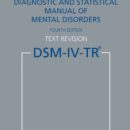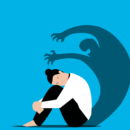OCD and DSM-V: Taking the “anxiety” out of OCD
Psychiatrists and psychologists continue to debate the fundamental nature of OCD, trying to decide whether or not OCD should continue to be classified as an “anxiety disorder.” In some ways, OCD overlaps with other anxiety-related conditions, such as panic disorder, phobias, social anxiety disorder, generalized anxiety disorder, and post-traumatic stress disorder (PTSD). In other ways, OCD is unique unto itself. Although the current version of the Diagnostic and Statistical Manual (the book that psychologists and psychiatrists use when making diagnoses) classifies OCD as an anxiety disorder, the next revision is likely to give OCD its own category of related conditions (see here). Regardless of your position on the conceptual issues involved in this change, there are many pragmatic benefits that arise from treating OCD-related conditions as distinct from the anxiety disorders. For example, it is likely that this change will ultimately...
Read MoreOCD guilt, shame, disgust, anxiety & depression: Why treatment sometimes fails (and what to do about it)
OCD isn’t just about anxiety. Although anxiety is certainly a prominent feature of the disorder, clinicians who only attend to anxious symptoms can easily overlook some of its other core features. As a psychologist in Palm Beach, Florida, I work closely with kids, teens, and adults throughout the greater Palm Beach, Fort Lauderdale, and Miami areas on strategies for recovering from OCD. In the patients I treat, anxiety is often accompanied by significant guilt, shame, disgust, and depression. These features are not necessarily related to, or caused by, anxiety; they can be distinct processes. If you (or your psychologist) conceptualize exposure and response prevention (ERP) as only a means to habituate to anxiety but fail to consider how treatment must also address these other features, you are likely to have a suboptimal treatment response and will continue to experience significant...
Read MoreOCD, ERP, & doubt sensitivity: Shattering the illusion of certainty
Many individuals with OCD hunger for certainty. It’s a craving that often can’t be easily sated. Early conceptions of OCD from the 19th century acknowledged this issue directly, in that OCD was often termed the “doubting disease.” It is this need for certainty, the need to eliminate doubt, that leads many people with OCD to perform repetitive behaviors, which are known as rituals. For example, it is doubt about whether one’s hands are sufficiently clean that leads one to engage in repetitive hand-washing rituals. Likewise, uncertainty about whether a stove has been turned off (and worry about potentially dire consequences) can underlie checking rituals. Many different types of rituals involve reassurance-seeking behaviors. For people with OCD who have intrusive bad thoughts (e.g., What if I secretly want to hurt a family member? What if I don’t believe in God...
Read MoreOCD symptoms: the obvious (and the not so obvious)
Symptoms of OCD are everywhere. Turn on your television, and you’re likely to catch at least a fleeting glimpse of obsessive-compulsive disorder (OCD). Many popular TV shows feature characters with OCD (e.g., Emma on Glee, Monk), and it is through this lens that many members of the general population get their first exposure to OCD. Unfortunately, if your understanding of OCD is based solely on depictions in the popular media, you are likely to have a relatively limited (and perhaps, warped) sense of what OCD really is. The truth is that OCD symptoms can manifest in many different ways. Although some symptoms are more common (e.g., a fear about about germs or getting sick), other symptoms can be quite idiosyncratic and often go undetected by inexperienced psychologists. The unfortunate consequence of this is that many people with OCD don’t...
Read More






